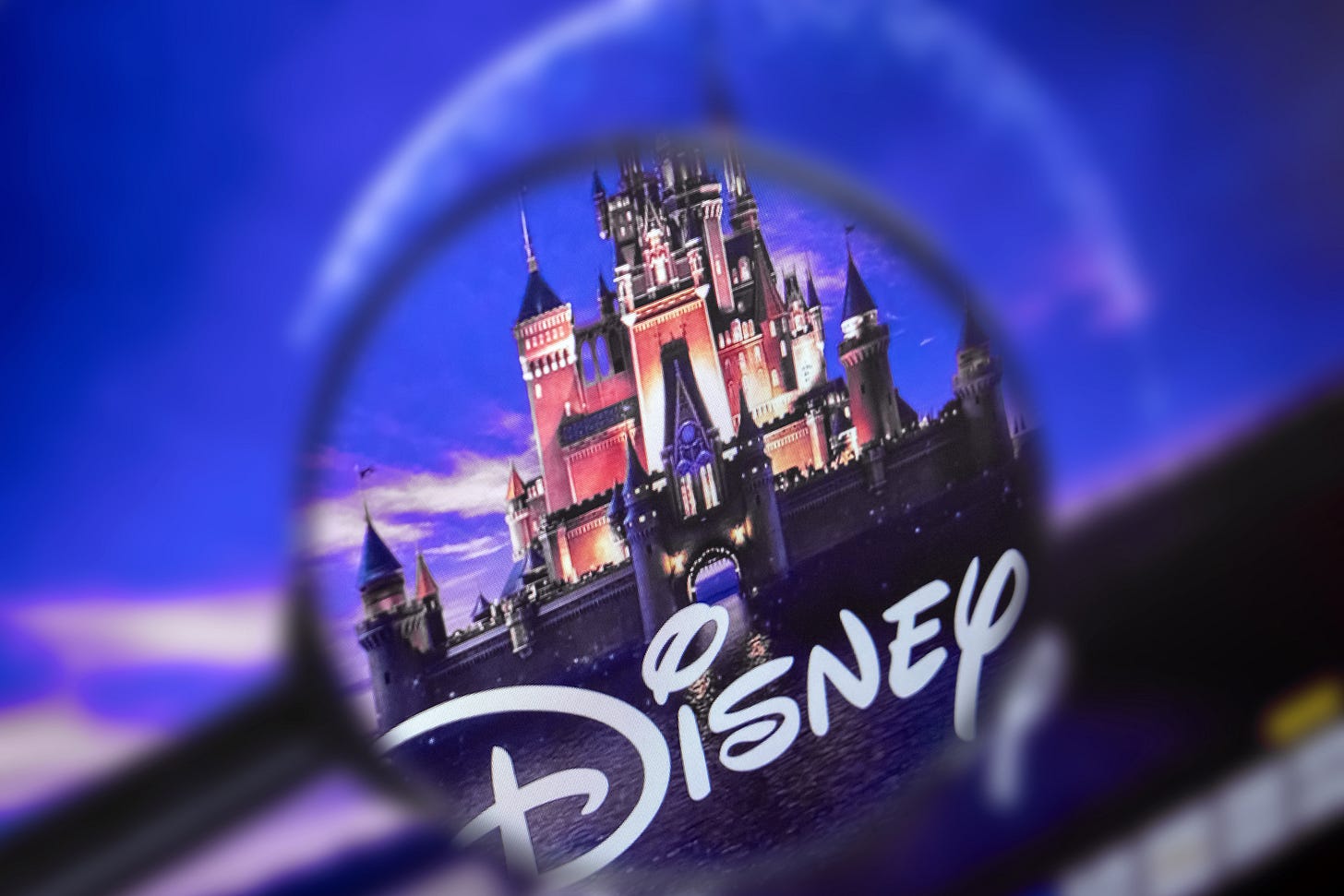E-Pluribus | May 11, 2021
Disney wants employees to get woke, where does journalism end and activism begin, and should race matter when it comes to helping pandemic-stricken restaurants?
A round up of the latest and best writing and musings on the rise of illiberalism in the public discourse:
Christopher F. Rufo: The Wokest Place on Earth
Although some of Disney’s theme park rides have received a lot of attention lately, both for their wokeness and lack thereof, Christopher Rufo writes at City Journal that the real wokeness lies beneath the surface where Disney is subjecting its employees to diversity and inclusion programs on steroids if leaked documents are to be believed.
In order to put these ideas into action, Disney sponsored the creation of the “21-Day Racial Equity and Social Justice Challenge” in partnership with the YWCA and included the program in its recommended resources for employees. The challenge begins with information on “systemic racism” and asks participants to accept that they have “all been raised in a society that elevates white culture over others.” Participants then learn about their “white privilege” and are asked to fill out a white privilege “checklist,” with options including: “I am white,” I am heterosexual,” “I am a man,” “I still identity as the gender I was born in,” “I have never been raped,” “I don’t rely on public transportation,” and “I have never been called a terrorist.”
Next, participants learn about “white fragility” and are asked to complete an exercise called “How to Tell If You Have White Fragility.” The program interprets beliefs such as “I am a good person, I can’t be racist” and “I was taught to treat everyone the same” as evidence of the participant’s internalized racism and white fragility. Finally, at the conclusion of the 21-day challenge, participants are told that they must learn how to “pivot” from “white dominant culture” to “something different.” The document claims that “competition,” power hoarding,” “comfort with predominantly white leadership,” “individualism,” “timeliness,” and “comprehensiveness” are “white dominant” values that “perpetuate white supremacy culture”—and must be rejected.
Read it all here.
Paul Benedetti and Wayne MacPhail: When Journalism Blurs Into Activism—A Canadian Case Study
Journalists who specialize in a particular field are perhaps always susceptible to getting too close to their subject matter to remain objective. Paul Benedetti and Wayne MacPhail, two veteran Canadian journalists, use several recent examples demonstrating how the desire to make a certain point rather than simply present the facts can quickly stray into outright activism, and worse, misinformation.
We are two long-in-the-tooth Canadian journalists who began our careers in the 1980s. We’ve written investigative pieces about AIDS, alternative medicine, drug-money laundering, health fraud, and chiropractic (which we co-authored a book about in 2003). Paul also has been a journalism professor at the University of Western Ontario, while Wayne founded Southam InfoLab, a research unit for a large Canadian newspaper chain.
While neither of us is a scientist or mathematician by training, we learned that the correct reporting of facts and data is an important component of good journalism. We also learned how easy it is for even objective journalists to garble, ignore, or misunderstand the numbers they cite in their articles. Many writers, ourselves included, start their careers with only a tenuous grasp of many basic mathematical concepts. We generally either teach ourselves how to become informed and competent laypeople, or we recognize our limitations and avoid stories that require these analytical abilities.[…]
Of course, this all may seem like nitpicking to some: The bottom line, surely, is that systemic racism, sex trafficking, and femicide are serious issues that require a serious policy response, and that everything else is mere detail.
But professional journalists have long operated on the basis that details really do matter, especially when it comes to life-and-death matters. There are hundreds of important problems that our governments must address. Reporting honestly on these problems helps inform the creation of coherent, responsible, and balanced policies. Even if the data contained in an article has been rigorously fact-checked, reporting that data in a way that’s calculated to give readers an exaggerated sense of fear or urgency is an intellectually dishonest exercise that can distort public priorities.
Read it all here.
Zaid Jilani: What's Race Got to Do With It?
In April, I wrote on this site about the tendency to use “visible markers such as race, ethnicity, sex and/or gender preferences as a proxy” for other, more genuine points of diversity. Zaid Jilani writes at Persuasion that the Biden administration is using race to dole out assistance to restaurants hard hit by the pandemic. Not only is there a danger of missing those truly in need, the elevation of race as a legitimate criterion for government benefits cannot help but convey a discriminatory message that is antithetical to the values that our society ostensibly hold dear.
You might imagine that a rational way to prioritize these funds would be by need. But if you start filling out an application to participate in the Restaurant Revitalization Fund, as the program is called, you’ll find that for the first 21 days it will prioritize small businesses that are “at least 51 percent owned by one or more individuals” who are women, veterans, or “socially and economically disadvantaged.” That last part includes individuals “who have been subjected to racial or ethnic prejudice or cultural bias as a member of a group without regard to their individual qualities.”
This is a bizarre way to distribute government support. The purpose of this fund is to help restaurant-sector businesses that have been battered by the pandemic. What should skin color have to do with it? Sure, some businesses owned by members of minority groups have been hurt badly by the pandemic, but then you could simply prioritize them based on economic need. Using skin color as an approximation for need will have perverse outcomes.
Read the whole thing.
Around Twitter
A short video from Foundation for Individual Rights in Education on mandatory diversity training at the University of Oklahoma:
A somber reminder of what lies at the bottom of censorship’s slippery slope:
A censorship idea we can all get on board with:
GLADD’s CEO calls for censorship of online speech:
Jonathan Kay on the cycle of cancel culture discourse:
Finally, Donald Glover weighs in on cancel culture, or does he?:










